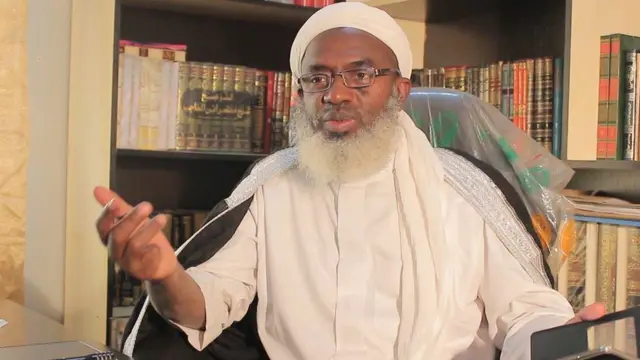Prominent Islamic cleric, Sheikh Ahmad Gumi, has reiterated his call for a non-kinetic, dialogue-driven approach to tackling Nigeria’s worsening insecurity, insisting that some armed groups are willing to put down their weapons if the government adopts the right strategy.
Speaking on The Morning Brief, a Channels Television programme aired on Tuesday, Gumi argued that Nigeria’s security challenges cannot be resolved solely through military force. He maintained that sustained engagement, negotiations, and rehabilitation were necessary to complement ongoing security operations.
“We have people who are ready to put down their arms, so why do you always decide it has to be kinetic?” he asked, stressing that non-violent solutions were increasingly crucial as insurgency and banditry evolve.
Gumi criticised the reliance on force, citing examples from around the world where advanced armies struggled to suppress insurgent groups. “Even America could not succeed in Afghanistan, even Israel could not succeed in a small strip of land. Our army is not designed for guerrilla warfare; no army is designed for the kind of people we are facing now,” he said.
The cleric also commented on the case of Nnamdi Kanu, leader of the Indigenous People of Biafra (IPOB), who was convicted on seven counts of terrorism by the Federal High Court in Abuja on 20 November 2025. Gumi said he would be willing to advocate for Kanu’s release if he demonstrates genuine remorse.
READ ALSO: Police, govt officials always follow me to negotiate with bandits – Sheikh Gumi
“This Kanu that was imprisoned for terrorism… if this same Kanu now will show remorse and also call for peace, honestly, I will be in the forefront in calling for his pardon and amnesty,” he stated.
Referencing historical precedents, Gumi noted that Nigerian leaders have previously granted amnesty to individuals involved in major conflicts, including former President Shehu Shagari’s pardon of Chukwuemeka Odumegwu Ojukwu and Umaru Musa Yar’Adua’s amnesty for Niger Delta militants.
He explained that communal conflicts often require political solutions, unlike isolated criminal acts. “After the civil war, atrocities were committed from both sides… and yet the engineers were pardoned because it’s communal. But if it’s an individual killing an individual now, the law will come in,” he said.
The cleric concluded by urging national unity, peace, and reconciliation. “We want peace in Nigeria, in every area. Wherever there is tension.”
His comments come amid heightened national concern following recent mass abductions and attacks across several northern states, which have underscored the urgent need for effective security reforms.



